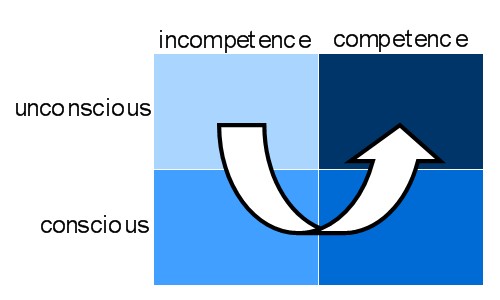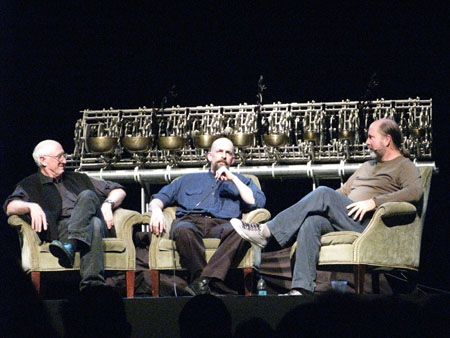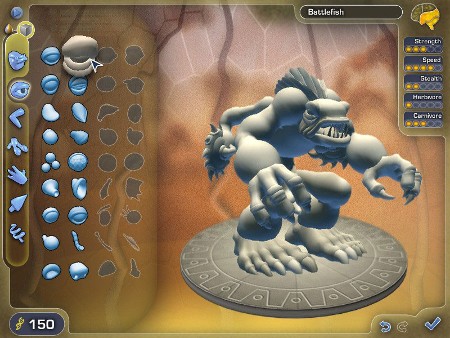October 13, 2008
neal stephenson's anathem reading
Stewart Brand, Neal Stephenson & Danny Hillis in conversation
Regency Ballroom, San Francisco 09/09/2008
April 28, 2007
jon stewart, josh marshall and bill moyers triple threat
In case you missed it on TV last night, the Bill Moyers interviews with Jon Stewart and Josh Marshall (of Talking Points Memo) are posted at the PBS site. Both are excellent long form discussions, and it is obvious that Moyers is enjoying himself thoroughly. I think you will too.
December 8, 2006
interview with Elan Lee, ARGmaker extraordinaire
Elan Lee. The Beast. ilovebees. Jane McGonigal. Color me fanboy.
To be fair, sometimes I ask for things that are just too hard. Back in AI, the challenge was, hey, let’s build the game in such a way that your life just gets weird. The producers came back to me and said, what does that mean? I said, I want you to look at the web, and suddenly nothing quite makes sense anymore. And they said, well, we could do a little pop-up window. I said, what I want is, after you visit this website, your car only drives in reverse and none of your friends remember your name and suddenly your mom doesn’t speak English. And they kind of gave me this blank look and I said, yeah, I’ll settle for a pop-up window. So sometimes imagination gets the best of me.
Go read this excellent interview in gamasutra [thanks Patrick & Rych, I'd link to you but I can't find your blogs ;-)]
November 28, 2006
thinking long from Second Life
Via the Long Now SALT list (subscribe), a very promising talk by Philip Rosedale, founder of Linden Labs and Second Life happening this Thursday night in SF. I can't go, but maybe you should.
The online substitute reality called "Second Life" now has over a million residents, growing by some 30% a month. It has a vast token economy which intersects with the real-world economy (the rate varies around 300 Linden Dollars to 1 US dollar). Real universities teach courses within "Second Life" and real corporations sell goods there, joining no end of businesses that exist solely within that alternate world. It is a teeming place, celebrating unfettered creativity.Thursday evening, the founder and CEO of "Second Life," Philip Rosedale, will explore some of the early lessons about long-term thinking (and everything else) to be gleaned from the emergent behaviors of massive multi-player world building...
"'Second Life:' What Do We Learn If We Digitize EVERYTHING?" Philip Rosedale, Cowell Theater, Fort Mason, San Francisco, 7pm, Thursday, November 30. The lecture starts promptly at 7:30pm. Admission is free (a $10 donation is welcome, not required).
5w33t!
September 11, 2006
great vernor vinge talk at AGC
"Ubiquitous computing is sort of a slippery term. As with treason, it’s mainly a matter of dates."
Now that's a quote for the ages ;-) Vernor Vinge, one of my sci-fi heroes and author of the recent and hearty ubicomp-infused novel Rainbows End, gave a provocative speech about the future at the Austin Games Conference last week. Mark Wallace transcribes Vinge's talk for us here (Mark's 3pointD blog focuses on "the metaverse and 3D web", and looks quite interesting).
"If you take together all of the things I have been pushing here, there really is a situation where cyberspace has leaked into the real world, in fact the title of the talk was Inside Out, which was intended to convey the notion of what was inside box in all eras up to ours, in this sort of era is outside..."Then there are microduration labor markets, a casual game that could be the end of occupations. To the extent that you have any spare time at all, if you’re in an environment like the one I’m describing here and you’re a flexible person with some expertise in something, that means you can actually make money on any job you can undertake and complete in 30 seconds... (I wonder if he's seen Mycroft?)
"A more extreme thing that many of us would be quite uneasy about, but it’s one thing I’m intrigued by is the notion of lifestyle cults. It’s something akin to a total information awareness system, the idea of somebody snooping on you all the time at a micro level is for most of us very offensive. It certainly frightens me, but you can imagine a voluntary total information awareness consortium as a commercial sort of thing."
And much more, go read the whole thing at 3pointD.
[via Raph Koster]
August 8, 2006
Guy is a purple cowasaki, heh!
Seth Godin and Guy Kawasaki are two of the most likeable business writers and speakers on the net (for me; YMMV as usual). Even though I haven't met either of them personally, I have an inexplicably warm regard for both. So here they are together, Guy interviewing Seth: Ten Questions with Seth Godin.
Question: What are you incompetent at and have the will to change?Answer: In my essay on incompetence—in the book, did we mention I have a new book?—I argue that competence is the enemy. People who are competent are afraid to fail, afraid to experiment. They like being competent and defend it.
I’ve worked hard all my life to become incompetent but motivated at just about everything. Sure, there are plenty of areas where I’m completely afraid to change the routine—protecting my left shoulder, for example, or taking up drinking—but in general, if there’s a chance to get worse at something, I’m willing to give it a shot.
Heh. I guess I understand where Seth is coming from on this; the notion of a 'beginner's mind' "refers to having an attitude of openness, eagerness, and lack of preconceptions when studying a subject, even when studying at an advanced level, just as a beginner in that subject would." (wikipedia) comes from Zen Buddhist philosophy. I can't agree with his rejection of competence however, nor do I think that he really believes in incompetence as a goal. I've found it useful to consider competence-building as a cycle through four phases:

When you start, you are unconsciously incompetent -- that is, you don't know what you don't know. Then you start to realize that you are incompetent, and work to become competent. Finally, you are competent enough that you don't need to think about it, you act intuitively, unconsciously. This model is well-known in corporate training and coaching circles, and the usual goal is to progress through the phases as an individual or team. But I think the real game here is to be meta-aware of the strengths and weaknesses you have in each phase, and the barriers each presents to creativity and innovation. It is hard to maintain a beginner's mind when you are a competent individual in a culture that reinforces your self-perception of expertise; it is equally hard to maintain confidence in your ideas and aspirations when you can see that your learning curve goes straight up an overhanging cliff.
July 23, 2006
the enlightenment is under attack
For me, this was the best nibble from Roland Piquepaille's zdnet blog interview with Howard Rheingold:
Roland: Can you give us some tips or advises about the immediate future?Howard: The enlightenment is under attack. Wake up to the necessity for preserving democracy, science, and open access to the means of cultural production and distribution.
Howard is a zen master of the eloquent turn of phrase; this is one of his best. The Enlightenment is under attack, indeed.
June 27, 2006
will wright & brian eno
Will Wright & Brian Eno gave a most excellent talk last night in San Francisco, as part of the Long Now SALT seminar series. Stewart Brand's summary captures the highlights nicely
Wright observed that science is all about compressing reality to minimal rule sets, but generative creation goes the opposite direction. You look for a combination of the fewest rules that can generate a whole complex world which will always surprise you, yet within a framework that stays recognizable. "It's not engineering and design," he said, "so much as it is gardening. You plant seeds. Richard Dawkins says that a willow seed has only about 800K of data in it."Eno noted that ambient music, unlike "narrative" music with a beginning, middle, and end, presents a steady state. "It's more like watching a river." Wright said he often uses Eno's music to work to because it gets him in a productive trancelike state. Eno remarked that it's important to keep reducing what the music attempts, and one way he does that is compose everything at double the speed it will be released. Slowing it down reduces its busyness. Wright: "How about an album of the fast versions?" Eno: "'Amphetamine Ambient.'"
Wright demonstrated his work in progress, the "massively single-player" tour de force Spore. Lots of good info at http://en.wikipedia.org/wiki/Spore_(game), including this luscious screenshot of the creature editor:
Fig 1: Spore [many amazing videos at googlevideo]
Eno noted that his soon to be released software project "77 Million Paintings by Brian Eno" will pose an interesting challenge to copyright regimes, as it consists of art that is generated algorithmically from seeds of his own works.

Fig 2: A few of Eno's 77 Million Paintings




